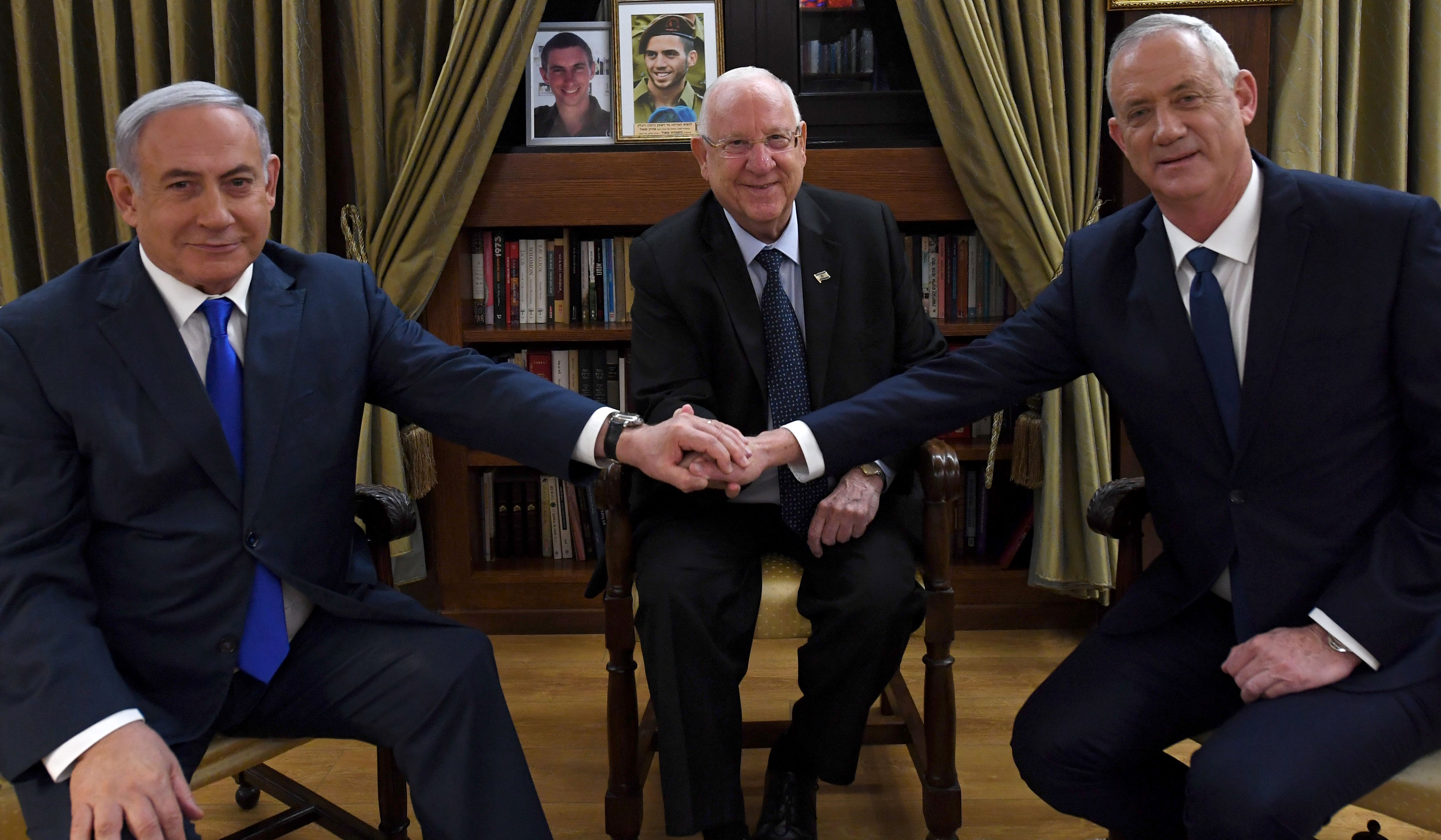With Israeli President Reuven Rivlin expected to announce who will form a coalition government, the Joint List has been torn over whether to jump in the fray. The Joint List is the third-largest political group in Israel’s parliament, the Knesset, after winning 13 seats in legislative elections held on September 17.
On Sunday, September 22, ten MPs from the Joint List recommended Blue and White’s (Kahol Lavan) Benny Gantz for prime minister, after the elections saw his Kahol-Lavan (Blue & White) party win 33 seats out of a total of 120 seats while incumbent Prime Minister Benjamin Netanyahu’s Likud won 32 seats. (The Knesset’s Central Elections Committee announced earlier this week that, as a result of votes that it invalidated due to voter fraud, the number of MKs from the ultra-orthodox United Torah Judaism’s dropped from 9 to 8, while the Likud thereby gained an additional seat to its previous 31.)

Prime Minister Benjamin Netanyahu, President Reuven Rivlin and Blue & White leader MK Benny Gantz during a meeting held on Sunday, September 22, at the Presidential Residence in Jerusalem (Photo: GPO)
The Joint List fears that a national unity government between Likud, Blue and White and Yisrael Beiteinu would be the worst nightmare for Arab-Palestinian citizens of Israel, as well as others in the occupied Palestinian territories.
However, the decision to back Gantz did not go down without a debate inside the Joint List, which is made up of Hadash and three Arab parties Ta’al, Balad and the United Arab List.
Hadash MK Yousef Jabareen, whose front calls for equal rights for all citizens inside Israel, told Middle East Eye that the move to back Gantz was “neither right nor wrong,” as Palestinian parties in the Knesset find their margin for maneuvering shrinking. “The main goal was to express the wish of the people who voted for us to oust Netanyahu and the extreme right, though there is no guarantee that a genuine change would take place in the Israeli policies even if Netanyahu is gone,” Jabareen said.
“After years of experiencing incitement from Netanyahu and his government’s racist laws, such as the nation-state law, and the increase of occupation and settlements, getting rid of Netanyahu has become an urgent demand,” he added
After the Joint List endorsed Gantz, Yisrael Beiteinu leader Avigdor Lieberman lambasted the move, describing the coalition as “a fifth column,” and saying that its MKs should go and “serve in the parliament in Ramallah.” Jabareen said that Lieberman’s statement was no surprise “Lieberman has built his political life on incitement,” he said.
According to the Haaretz editorial published on Monday, September 23: “Less than a week after his impressive electoral achievement, the head of the largest Knesset faction, Kahol Lavan leader Benny Gantz, conceded his right to be the first to try and form a coalition government. The explanation given by ‘party sources’ for this concession is that Gantz prefers to wait for Netanyahu to try first and fail. Gantz ignored the Joint List’s support for him as the candidate for the prime minister’s job, even though without it he has no chance of forming a coalition. He refrained from discussing the demands posed by the Joint List, responding with disdain (‘our platform already addresses these issues’), not trying to even put on a show of trying to prevent the departure of the Balad faction in the Joint List, which refused to recommend him to the president. This leaves him with only 54 Knesset members supporting him, one less than Netanyahu has.”
Haaretz said that, “Balad relinquished an unprecedented opportunity to present its positions in the course of political negotiations, hunkering down behind its anti-Zionist ideology that automatically disqualifies cooperation with any party that is not part of the Joint List, from the extreme right to Meretz. The bottom line is that they preferred Bibi [Benjamin Netanyahu] to [Joint List MK Ahmad] Tibi.”
Related:


